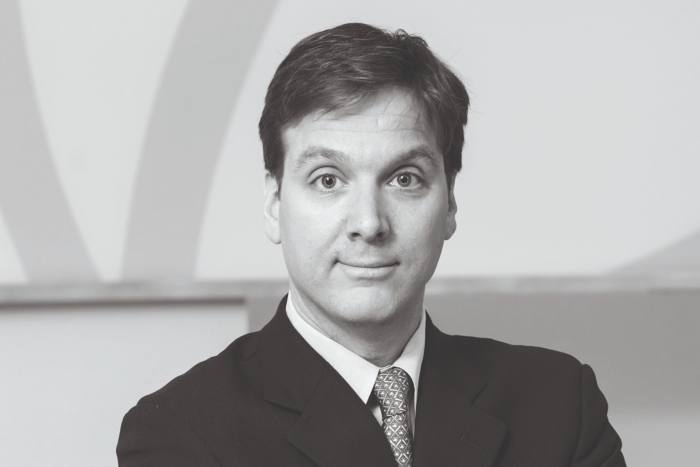For generations after the 2nd entire world war, it was a protected assumption that globalisation would keep on unabated. The opening of economies, technological innovations, cultural exchange and political engagement ushered in a person of the most expansive intervals of international interconnectedness in history. Regardless of recent gloomy warnings, there is scant proof that this development will reverse.
Knowledge from the DHL World-wide Connectedness Index (GCI), created by NYU Stern’s DHL Initiative on Globalization, point out that the movement of items, expert services, capital, details and people today throughout borders has developed steadily because the 1940s and by extra than a quarter this century.
Provided the disruption of the coronavirus pandemic and climbing nationalist and populist actions all-around the entire world, numerous have opined about the imminent rise of autarky and the finish of globalisation as we know it.
But we have nevertheless to see a turning point. Regardless of a slowdown after the 2008-09 economical crisis and a temporary sharp fall in the aftermath of the pandemic, the GCI and other indexes point to a rebound in globalisation’s flows. The quantity of entire world trade in items is five per cent higher than pre-pandemic levels, and most other flows are recovering quickly, apart from actions of people today, muted by travel restrictions.
So what did pundits get incorrect? They misunderstood the resilience and gradual-modifying mother nature of the political, economic and social institutions that support current trends.
Regardless of anti-globalist populist political actions, meaningful motion has only arrive on the margins. Boosts in tariffs led to frictions and lifted expenditures connected with exchange, but they did not halt trade. Brexit manufactured the connection in between the British isles and the EU fraught, nevertheless significantly hard work has been manufactured to stay away from harming significant exchanges.
Somewhat than walk absent en masse from bilateral and multilateral trade agreements, in excess of the past few several years countries have struck new trade agreements in Asia, Africa and all-around the Pacific Rim, though Nafta was renegotiated.
With the exception of Brexit there have been few extensive-phrase plan brakes on flows of people today. A recent UN assessment found 10 instances extra countries loosening immigration policies than limiting them. Even though the US, the British isles and the EU are turning into slightly considerably less immigrant-helpful, they continue being attractive for all styles of human flows: authorized and unlawful immigration, prolonged analyze and vacationer visits. Nations this sort of as Canada, Australia and UAE have, in some ways, turn out to be extra welcoming and crammed the gap.
As for details flows, though regulation of Big Tech is expanding, there is multilateral motion to boost knowledge transfers, which are progressively bundled in trade pacts. Knowledge policies usually reaffirm privateness protection nevertheless also recognise the great importance of cross-border conversation.
The economic units, constructions and paradigms of the write-up-2nd entire world war liberal economic order continue being fairly intact. The hegemonies of the US dollar and US-led institutions keep on in spite of recurring tries to develop viable alternate options. Multilateral organisations this sort of as the WTO, IMF and Entire world Financial institution keep on to deliver significant infrastructure and support for economic exchange.
China designed the China Advancement Financial institution and spearheaded the Asian Infrastructure Financial commitment Financial institution. Yet they are dwarfed by the Entire world Financial institution and the IMF, their extra broadly supported brethren. Producing countries advocate for extra influence at international economical institutions, but the elementary capabilities of individuals bodies have not adjusted.
In a entire world the place globalisation was transferring in reverse, we would hope to see extra economic decoupling. Yet the general health of the international overall economy carries on to be affected by people, banking institutions, providers and entities in the world’s premier and wealthiest economies, which includes domestic US curiosity amount plan and central bank exercise.
Even the emergence of China as an economic electricity has aided broaden the globalisation pie. As extensive as building countries keep on to adhere to economic openness as a route to growth and prosperity, next the direct of China, South Korea and Japan, globalisation is unlikely to falter.

Robert Salomon is professor of worldwide management and vice-dean of govt programmes, NYU Stern University of Enterprise
Socially, a drop in globalisation would probably be preceded by shifts in sentiment, with people today progressively disapproving of foreigners and rejecting foreign cultures. Yet a Pew Exploration Middle analyze displays that most countries see immigrants as a source of strength, and a recent survey by US News indicated the greater part of the world’s population sees sizeable benefit in international exchange.
Globalisation has therefore significantly endured recessions, a pandemic and political nationalism. What would it choose for that to modify? Indicators would involve political motion that progressively mirrors rhetoric, eroding assurance in the multilateralism that undermines multilateral institutions, the decoupling of the world’s economies and sizeable changes in social sentiment. Unless we see this sort of shifts, hope globalisation trends to keep on, nevertheless maybe at a slightly slower amount.
Globalisation’s strength in the encounter of sizeable threats highlights the will need to dig further to understand social, political and economic institutions, how they are probably to evolve in excess of time and the knowledge that underpin them.






More Stories
How To Host a SaaS Application On Your VPS Server
Why Your Business Plan Won’t Make You Rich Or Famous
Trending Topics and News